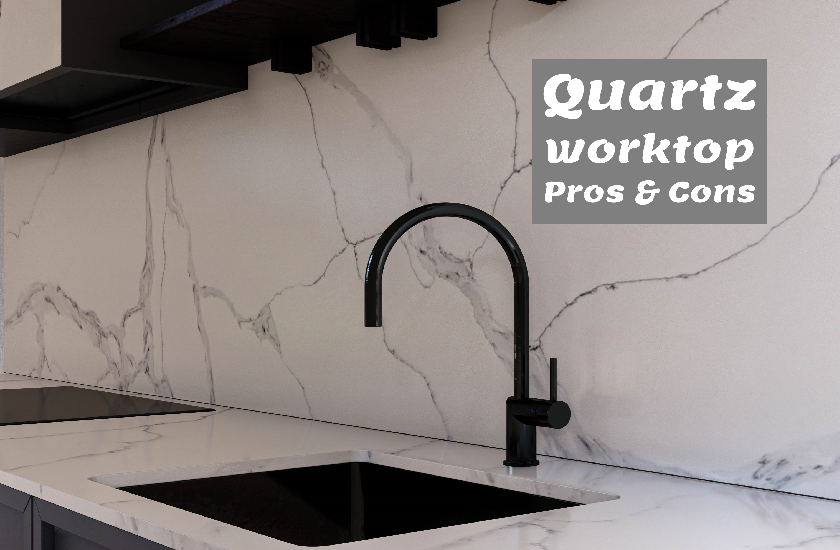
When it comes to choosing the perfect worktop for your kitchen, quartz stone worktops have become a popular choice for many homeowners. But what makes them so special? Let’s dive into the pros and cons of quartz stone worktops to help you decide if they’re the right fit for your home.
Quartz worktops are engineered stone surfaces made from a combination of natural quartz crystals and resin binders. This blend creates a durable, non-porous surface that is both beautiful and functional. Available in a wide range of colors and patterns, quartz worktops can mimic the look of natural stone while offering enhanced performance.
Durability: Quartz is one of the hardest minerals on earth, making quartz worktops incredibly durable. They are resistant to scratches, chips, and cracks, which is ideal for a busy kitchen environment.
Non-Porous Surface: Unlike natural stone, quartz worktops are non-porous, meaning they do not absorb liquids. This makes them highly resistant to stains from coffee, wine, and other common kitchen spills.
Low Maintenance: Quartz worktops are easy to clean and maintain. A simple wipe with soap and water is usually enough to keep them looking pristine. There’s no need for sealing, which is often required for natural stone surfaces.
Hygienic: The non-porous nature of quartz also means that it does not harbor bacteria or mold, making it a hygienic choice for kitchen surfaces.
Aesthetic Versatility: Quartz worktops come in a wide variety of colors and patterns, allowing you to customize the look of your kitchen to match your personal style. Whether you prefer a sleek, modern look or a more traditional appearance, there’s a quartz worktop for you.
Eco-Friendly Options: Many quartz manufacturers use recycled materials in their products, making quartz worktops a more sustainable choice compared to some other materials.
Cost: Quartz worktops can be more expensive than other options like laminate or solid surface materials. However, their durability and low maintenance can make them a worthwhile investment in the long run.
Heat Sensitivity: While quartz is heat resistant, it is not heatproof. Placing hot pots and pans directly on the surface can cause damage. It’s always best to use trivets or hot pads to protect your worktop and long life.
Appearance: Some people feel that quartz lacks the natural beauty and unique veining of materials like granite or marble. While quartz can mimic these looks, it may not have the same depth and character.
Installation Complexity: Quartz worktops are heavy and require professional installation. This can add to the overall cost and complexity of your kitchen renovation.
Quartz stone worktops offer a blend of beauty, durability, and low maintenance that makes them an excellent choice for many kitchens. While they come with a higher price tag and some sensitivity to heat, their benefits often outweigh these drawbacks. If you’re looking for a stylish, long-lasting, and hygienic surface for your kitchen, quartz worktops are definitely worth considering.